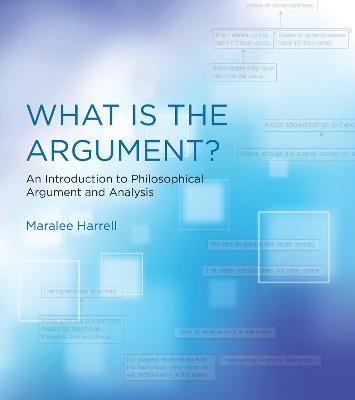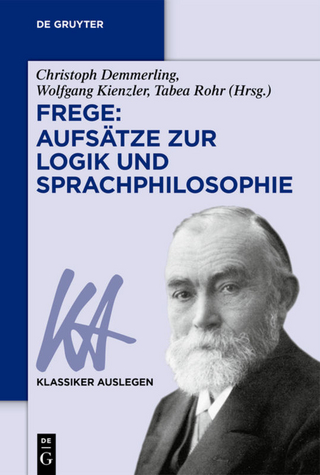
What Is the Argument?
An Introduction to Philosophical Argument and Analysis
Seiten
2016
MIT Press (Verlag)
978-0-262-52927-3 (ISBN)
MIT Press (Verlag)
978-0-262-52927-3 (ISBN)
- Titel z.Zt. nicht lieferbar
- Versandkostenfrei innerhalb Deutschlands
- Auch auf Rechnung
- Verfügbarkeit in der Filiale vor Ort prüfen
- Artikel merken
Exploring philosophy through detailed argument analyses of texts by philosophers from Plato to Strawson using a novel and transparent method of analysis.
The best way to introduce students to philosophy and philosophical discourse is to have them read and wrestle with original sources. This textbook explores philosophy through detailed argument analyses of texts by philosophers from Plato to Strawson. It presents a novel and transparent method of analysis that will teach students not only how to understand and evaluate philosophers' arguments but also how to construct such arguments themselves. Students will learn to read a text and discover what the philosopher thinks, why the philosopher thinks it, and whether the supporting argument is good.
Students learn argument analysis through argument diagrams, with color-coding of the argument's various elements-conclusion, claims, and "indicator phrases." (An online "mini-course" in argument diagramming and argument diagramming software are both freely available online.) Each chapter ends with exercises and reading questions.
After a general introduction to philosophy and logic and an explanation of argument analysis, the book presents selections from primary sources, arranged by topics that correspond to contemporary debates, with detailed analysis and evaluation. These topics include philosophy of religion, epistemology, theory of mind, free will and determinism, and ethics; authors include Aristotle, Aquinas, Descartes, Hume, Kant, Ryle, Fodor, Dennett, Searle, and others. What Is the Argument? not only introduces students to great philosophical thinkers, it also teaches them the essential skill of critical thinking.
The best way to introduce students to philosophy and philosophical discourse is to have them read and wrestle with original sources. This textbook explores philosophy through detailed argument analyses of texts by philosophers from Plato to Strawson. It presents a novel and transparent method of analysis that will teach students not only how to understand and evaluate philosophers' arguments but also how to construct such arguments themselves. Students will learn to read a text and discover what the philosopher thinks, why the philosopher thinks it, and whether the supporting argument is good.
Students learn argument analysis through argument diagrams, with color-coding of the argument's various elements-conclusion, claims, and "indicator phrases." (An online "mini-course" in argument diagramming and argument diagramming software are both freely available online.) Each chapter ends with exercises and reading questions.
After a general introduction to philosophy and logic and an explanation of argument analysis, the book presents selections from primary sources, arranged by topics that correspond to contemporary debates, with detailed analysis and evaluation. These topics include philosophy of religion, epistemology, theory of mind, free will and determinism, and ethics; authors include Aristotle, Aquinas, Descartes, Hume, Kant, Ryle, Fodor, Dennett, Searle, and others. What Is the Argument? not only introduces students to great philosophical thinkers, it also teaches them the essential skill of critical thinking.
Maralee Harrell is Teaching Professor of Philosophy at Carnegie Mellon University.
| Erscheinungsdatum | 22.11.2016 |
|---|---|
| Reihe/Serie | The MIT Press |
| Zusatzinfo | 313 line drawings; 626 Illustrations |
| Verlagsort | Cambridge, Mass. |
| Sprache | englisch |
| Maße | 203 x 229 mm |
| Themenwelt | Geisteswissenschaften ► Philosophie ► Logik |
| ISBN-10 | 0-262-52927-0 / 0262529270 |
| ISBN-13 | 978-0-262-52927-3 / 9780262529273 |
| Zustand | Neuware |
| Haben Sie eine Frage zum Produkt? |
Mehr entdecken
aus dem Bereich
aus dem Bereich
ein Gegenentwurf zum kurzfristigen Denken : so werden wir zu den …
Buch | Hardcover (2023)
REDLINE (Verlag)
18,00 €


